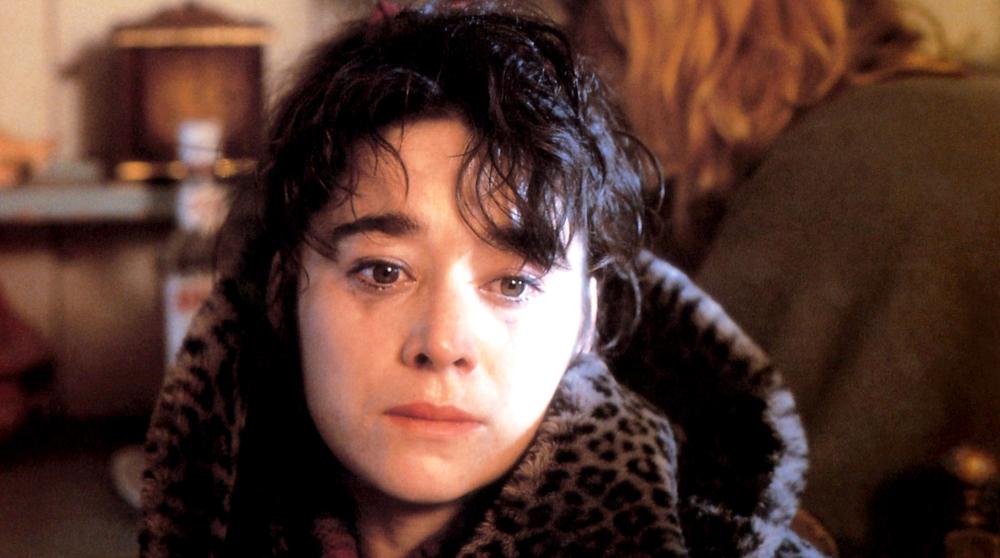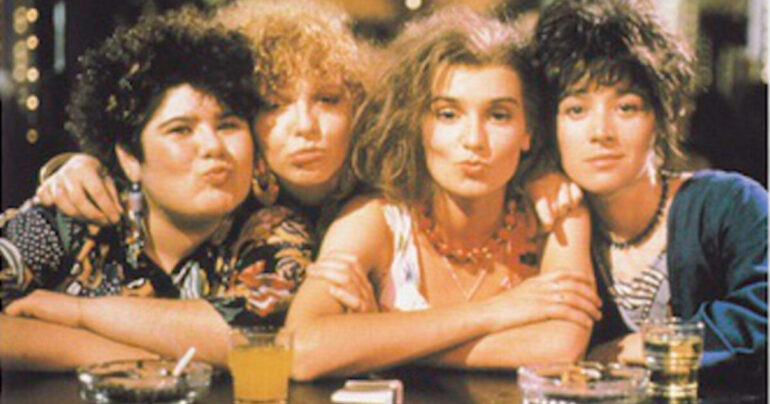Fishermen at Ballyshannon
Netted an infant last night
Along with the salmon.
An illegitimate spawning …
Seamus Heaney, ‘In Limbo’ (1972)
Margo Harkin’s Hush-a-Bye Baby is essential viewing, a classic of Irish cinema.
With a background in arts and theatre, Harkin both co-wrote and directed the film. It was released in 1990 but set in 1984, in the director’s native Derry. Hush-a-Bye Baby followed nearly twenty years of the Troubles, ongoing violations of civil rights and sectarian violence, and a long decade of sex- and pregnancy-related controversies.
These latter issues later made their way to our screens in films like Ann (2022), Out of Innocence (2019), or, most recently, Small Things Like These (2024). But Hush-a-Bye Baby was closer in time. Even after the groundbreaking work of Pat Murphy across the 1980s, Harkin’s image of Irish femininity and sexuality was refreshingly frank and complex.
The Derry Film & Video Workshop, co-founded by Harkin, produced the film. Its building was raided three times by the RUC and the Army during filming, while the director’s family lived there. Hush-a-Bye Baby even provides a brief image, on the tele, of another Workshop film. This is likely Anne Crilly’s Mother Ireland (1988), which focused on Ireland’s representation as a woman and women’s role in contemporary nationalism.
In Hush-a-Bye Baby, Harkin’s aesthetic is largely realistic, firmly anchored in her deep understanding of its time and place: all churches, checkpoints, grottos, and discos. But it opens more abstractly and artfully, its first image and scenes foreshadowing things to come. Throughout, murals and Marian iconography dominate the catholic Bogside.
In the emotionally demanding central role, Emer McCourt is excellent as fifteen-year-old Goretti. We first meet her friends – Dinky, Majella, and Sinéad (Sinéad O’Connor) – aerobicizing to ‘Girls Just Want to Have Fun’. We see, too, their school’s sweaty young fellas, who engage in aggressive play and then locker-room talk about our Derry girls.
O’Connor looks the part of a teen but had already released an album in 1987, the same year she became an unwed mum (he said without judgement). And I Do Not Want What I Haven’t Got (1990) was released only a few days after Hush-a-Bye Baby’s March 1990 release. In the film, her character imagines herself a nun, long before the singer’s best-known role as the Madonna in The Butcher Boy (1997), or her own later spiritual journey.

O’Connor also provides theme music and songs for Hush-a-Bye Baby, including ‘Ave Maria’. There are familiar pop artists like Cyndi Lauper, Culture Club, and The Style Council. We’re treated, too, to a little of Christy Moore’s ‘Unfinished Revolution’, which ends, perhaps prophetically, with ‘She holds the key to the unfinished revolution’.
After a little flirtation, Goretti and young Ciarán meet. Romance blossoms. Before long, they’re snogging to The Late Late Show and dodging parents and priests. Inevitably, of course, politics intervenes. With little reason, Ciaran’s lifted and interned, leaving Goretti to face her trials alone. Religion and a retreat to the Gaeltacht offer no relief.
As part of a dense layer of images and themes, water and life are central to Hush-a-Bye Baby and offer some of Harkin’s most impressive, cinematic sequences in the film. An anxious Goretti broods by the sea, waves crashing on the rocks, before tearfully confessing. Later, she attends a baptism. Over this, we slowly hear Heaney’s tragic ‘In Limbo’. We cut to a classroom, panning from Goretti’s friends to her frightened visage.
In a week in which a soldier is being tried in Belfast for their role in Derry’s Bloody Sunday massacre in 1972, it’s important to note that Harkin remains politically engaged, with a dozen or so documentaries on Northern culture and politics. Most recently, Stolen (2023) explored Ireland’s Magdalene laundries and mother-and-baby homes.
But Hush-a-Bye Baby, with its nuanced portrayal of the personal lives of young women in 1980s Ireland, is no less political. With considerable cinematic finesse, Harkin asks challenging questions about the freedom of the women in her ‘Free Derry’.
Hush-a-Bye Baby is a significant Irish film from an important Irish voice.
Hush-a-Bye Baby, in a new print restored by the Irish Film Centre, will be shown on 23 September 202025 at the Irish Film Institute, as part of its Margo Harkin: Radical Witness programme. It’s also available on IFI@Home and IFI International.
About the Author
Seán Patrick Donlan is a Professor of Law at Thompson Rivers University. Among other academic interests, including Irish law and history, he teaches Law and Film and has contributed to Film Ireland, History Ireland, the Law on Film Podcast, and Scannain. He’s on LinkedIn and on Letterboxd.

